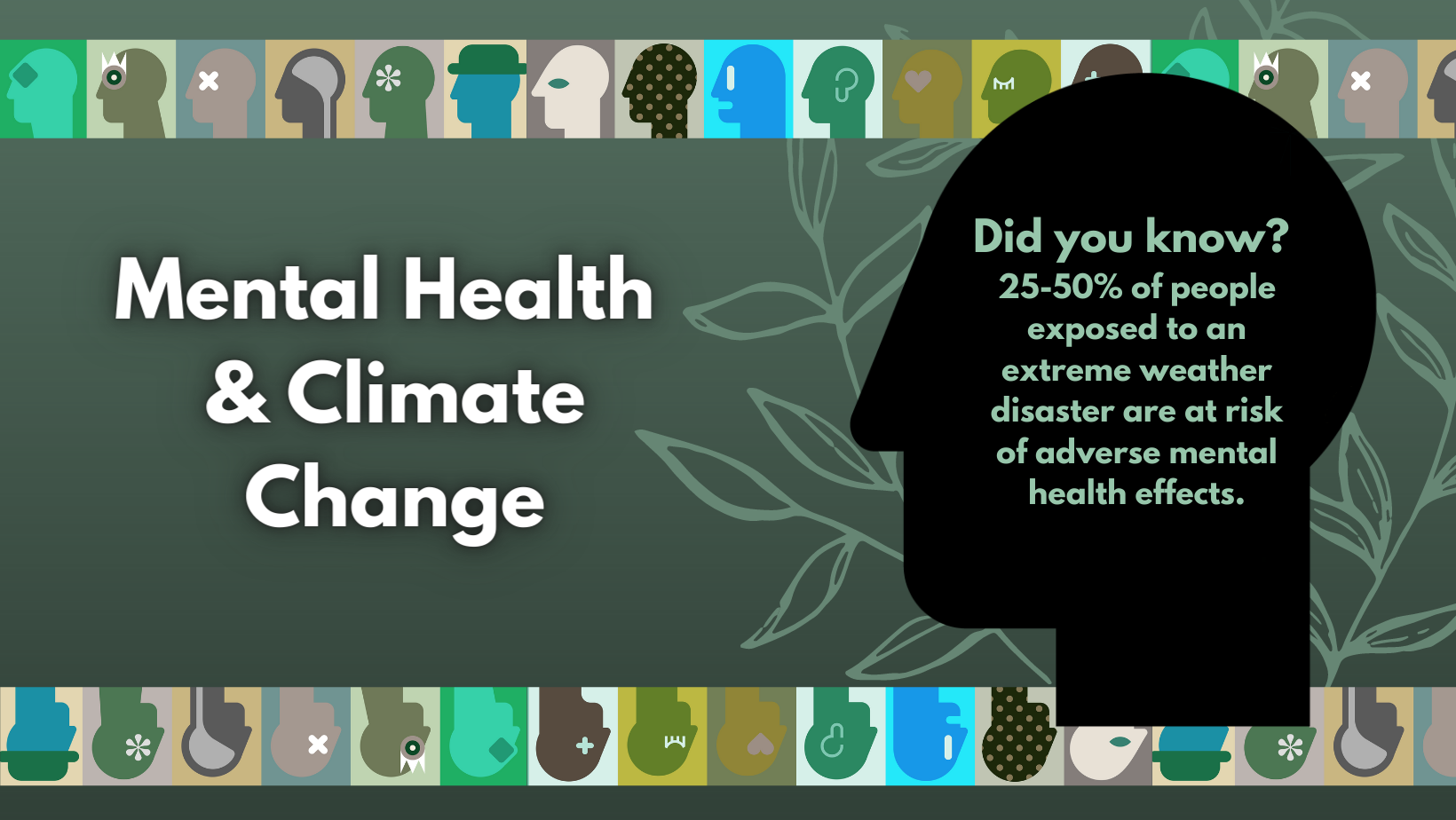Climate change is one of the biggest challenges of our time. Science has firmly established that human greenhouse gas emissions have caused severe impacts such as increased floods and droughts, wildfires, intense storms, heat waves, and rising sea levels. These impacts have observable environmental, social, agricultural, and economic effects, but equally important are the effects on human health, especially mental health.
Individuals and communities are affected by direct experiences with disasters and by exposure to information regarding climate change and its effects. Mental health consequences of climate change range from short-term stress and feelings of hopelessness and grief to clinical disorders, such as anxiety, depression, and post-traumatic stress. Though many will heal over time, these conditions can also create prolonged and significant impacts. Exposure to traumatic events and loss can also lead to substance abuse, violent behavior, suicidal thoughts, and social isolation.
As more people experience severe change, impacts and news becomes more dire, it is important for individuals and communities to find effective pathways towards recovery and resilience.
